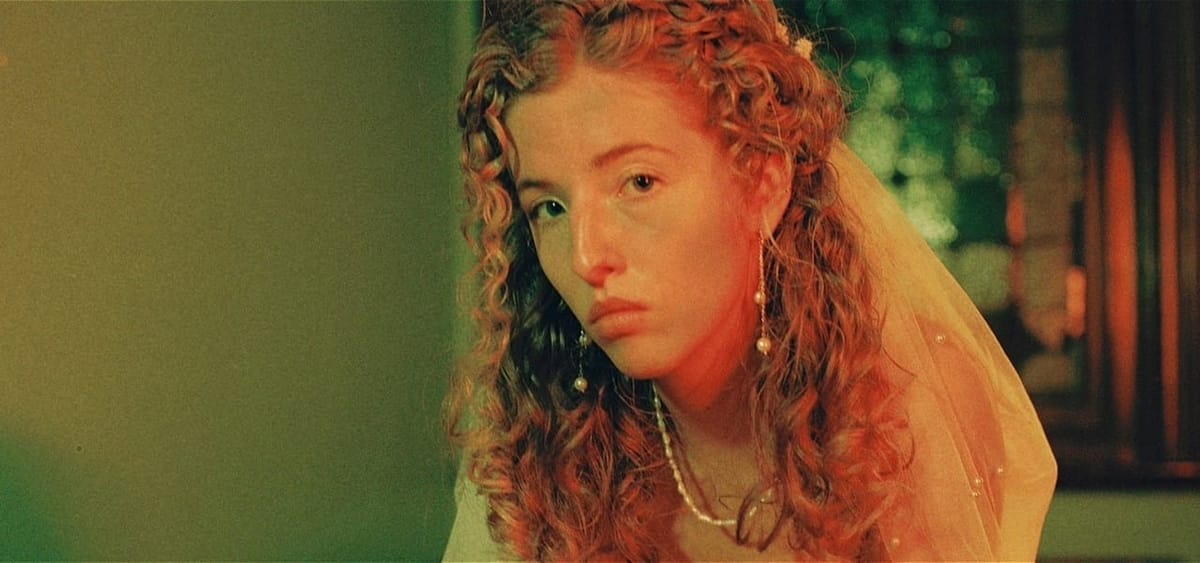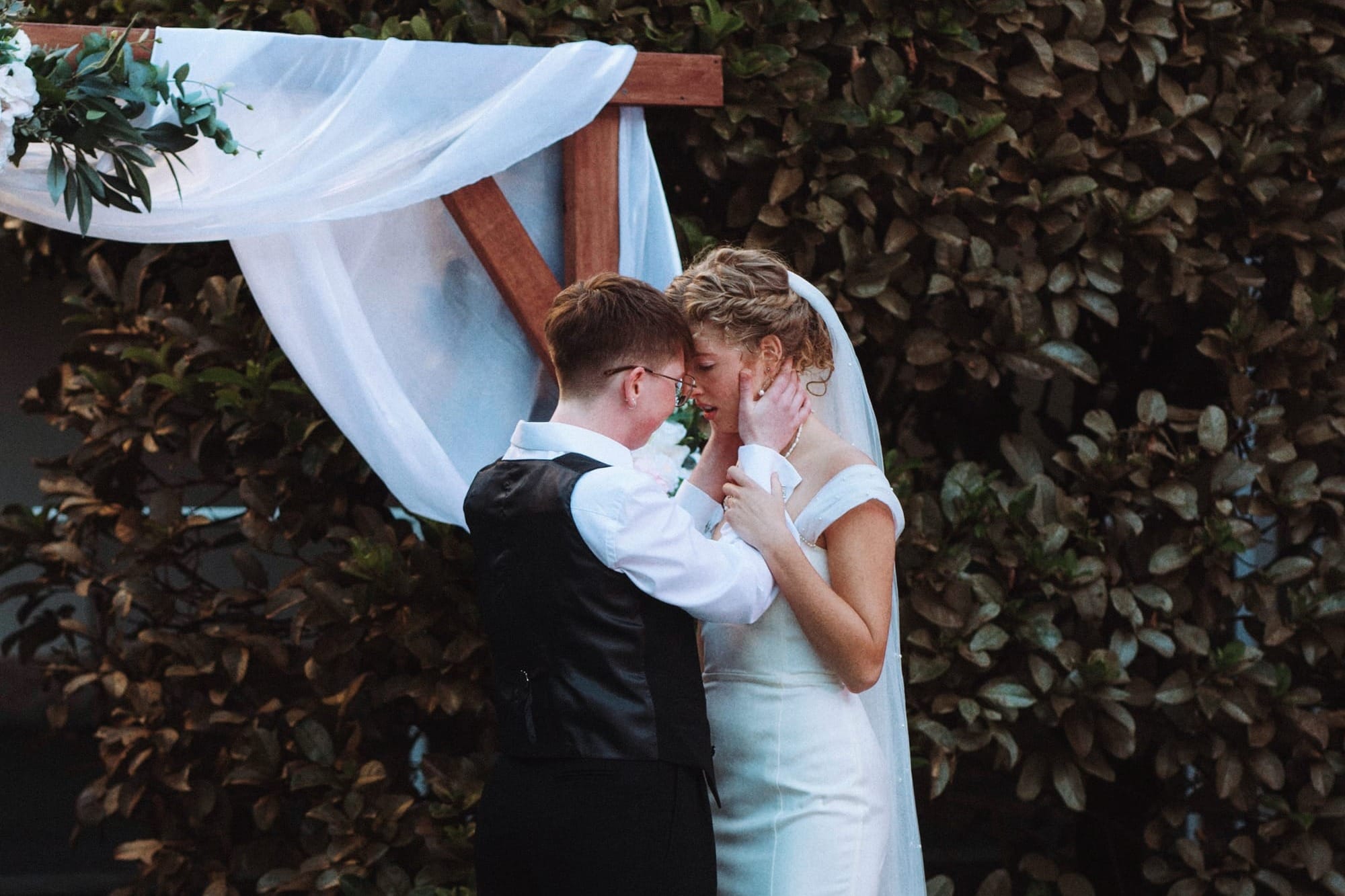👰 ALTAR by Em Tambree
A melancholic hour of reconciliation and reckoning: with the past, the stories we tell about ourselves, and queer futures.

It's Sutton's wedding day, and she's telling us how vital it is that her napkins are eggshell. Not cream, not off-white, and certainly not beige—eggshell. Meanwhile, Dan, an echo from Sutton's past, tells us how growing up they imagined marrying Sutton. Instead, ALTAR charts an hour of reconciliation and reckoning: with the past, the stories we tell about ourselves, and queer futures.
Sutton invited Dan to her wedding with a letter addressed to their deadname—the two of them having grown distant since spending high school wrapped in each other's arms. Their reunion is just as delightfully awkward and blistering as I’d have hoped.
Em Tambree's writing debut is a tender and fervent exploration of growing up and into queerness, or away from it. ALTAR is a simple story with a simple set-up but it skilfully reveals the pain of growing up queer amongst people who think queerness can just be a phase. The honesty of the writing bruisingly reflected losses in my own life, of having to mourn friendships with people who chose simpler (straighter) lives, lives which didn’t hold space for me.

ALTAR is staged as a wedding in the Rosina courtyard of Abbotsford Convent, complete with white wedding chairs and fairy lights. The outdoor setting is made even more gorgeous by the slowly setting sun. Director Kat Yates makes full use of the courtyard, and has the characters delightfully tussle and chase each other around and through the audience.
Evie Korver plays Sutton, a well-meaning but unfulfilled science teacher who's chosen a life of hetero-patriarchy. Her performance is equal parts melancholic and infuriating, highlighting Sutton’s distant relationship to queerness.
Meanwhile, Eddie Pattison plays Dan, a stunning contrast to Sutton’s naïveté. Dan is an atheist who writes queer fairytales with the happy endings they never got. Pattison’s performance is sharp and conflicted, vulgar in all the right ways.
The two performers are well-balanced and take turns evoking our sympathies and indifferences—both as much a testament to Yates’ skilful directing as it is Tambree’s finely crafted script.
Through the pair's orbit ALTAR explores the nature of faith, and its place in a world filled with large hadron colliders and lesbian nuns. As much as Dan thinks Sutton’s faith is archaic, her worldview has a lot to teach them, but not enough to bridge the chasm between the two of them.
Beyond God, Tambree’s writing also deftly gestures at notions of queer futurity, as explained by Cuban American writer José Esteban Muñoz:
"We are not yet queer, but we can feel it as the warm illumination of a horizon imbued with potentiality"
Muñoz wrote the above as a rallying cry for a queerness which drives us to imagine and build better futures. Tambree's script is filled with characters writing their own utopias, and healing towards a queerer future—particularly Dan, who is a blueprint for how to nurture queerness into the world.
Like Dan, I left the wedding mourning the friends I had to lose to reach my queer present. Muñoz says that queerness is an ideal, distilled from the past to imagine a future. ALTAR gets at the loss and grief of friends who stayed in the past unable to imagine our futures.
The world needs more stories which chart a journey to a better & queerer tomorrow. Stories like this. Recommend you catch this before it closes.

